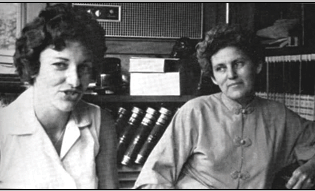One Art
BY PROF. VAROL AKMAN
Maxine Kumin
"I've been an atheist since the age of about 16.
God in my poems is sometimes used as a rhetorical device."
"Writers are all secret Jews," quipped Maxine Kumin (photo, right) in an interview with Martha George Meek in The Massachusetts Review (1975), a couple of years after receiving the Pulitzer Prize for her poetry collection Up Country. Kumin was born Maxine Winokur to Jewish parents in Germantown, Philadelphia, in 1925. She was the youngest of four children and the only girl. Her father was a pawnbroker whose family had emigrated from Europe. While he thwarted her daughter's interest in joining a music, dance, and swimming show, he approved of her writing, for he respected the written word. ("Actually I worshipped my father, but he was the autocrat. There's no question about it.")
After receiving an A.B. in history and literature from Radcliffe College (1946) she got married. Then she obtained her M.A. again from her alma mater (1948). While Kumin was an undergraduate, a professor read a bunch of her sonnets and asked her to "say it with flowers, but for God's sake don't write any more poems." Many years later Kumin would observe that until the Women's Lib movement, it was usual "to be told by an editor that he'd like to publish more of my poems, but he'd already published one by a woman that month."
In the 1950s Kumin met Anne Sexton (photo, left), with whom she had a strong literary relationship. "Somehow Anne and I were able to energize the process of writing by listening to each other's starts and false starts, but we were each absolutely singular in voice and intent."
Kumin's first book of poetry, Halfway, was published in 1961. The Privilege (1965) and The Nightmare Factory (1970) deal with issues of Jewish identity, family, and love. Kumin's New Hampshire farm was  the inspiration for her collection Up Country: Poems of New England, New and Selected (1972). Critics compared Kumin to Robert Frost and Henry David Thoreau for her evocations of the New England countryside. She has also been considered a confessional poet, in the manner of Sexton and Robert Lowell, but critic Rachel Hadas finds Kumin relatively more "steady, grounded, almost stoical in comparison; the language less likely to transcend its occasion and engage in lyric flights."
the inspiration for her collection Up Country: Poems of New England, New and Selected (1972). Critics compared Kumin to Robert Frost and Henry David Thoreau for her evocations of the New England countryside. She has also been considered a confessional poet, in the manner of Sexton and Robert Lowell, but critic Rachel Hadas finds Kumin relatively more "steady, grounded, almost stoical in comparison; the language less likely to transcend its occasion and engage in lyric flights."
Further works include the highly praised The Retrieval System (1978) and Our Ground Time Here Will Be Brief: New and Selected Poems (1982), comprising work on nature and death. Connecting the Dots: Poems (1996) opens with a landmark poem, "Letters," addressed to her mother, long dead. From the 1980s Kumin began to concentrate on communal issues in her verse. Her Selected Poems, 1960-1990 was published in 1997. More recent books such as Jack and Other New Poems (2005), Still to Mow (2007), and Where I Live: New and Selected Poems 1990-2010 (2010) continue to present Kumin's long-lasting interests in rural life and family relations while spreading out to cover topics varying from warfare to pets.
The poet laureate of New Hampshire (1989-1994), Kumin's numerous awards include the Ruth Lilly Poetry Prize, the Aiken Taylor Award, the 2005 Harvard Arts Medal, the 2006 Robert Frost Medal, and the 2008 Paterson Prize for Distinguished Literary Achievement. She served as Poet Laureate of the United States (1981-1982) and was elected chancellor in the Academy of American Poets (1996). Carolyn Kizer and Kumin resigned from the Academy in 1998 to protest the lack of African Americans on the board of chancellors.
Kumin had a horseback-riding accident in 1998. Her neck was badly injured and the diagnosis was gloomy. (Ninety-five percent of victims die within hours and ninety-five percent of the survivors are paralyzed forever.) However, she experienced an incredible recuperation period, thanks to the "halo" - a metal cage in which her head was enclosed for several months. Inside the Halo: the Anatomy of a Recovery (2001) is the moving chronicle of these unpleasant times.
The following piece revisits the day of Sexton's suicide (October 4, 1974) when Kumin was in all probability the last person to see her alive. In an interview with Chard deNiord in The American Poetry Review (2010), Kumin notes that she has written seven or eight elegies for Sexton, the last of them being "The Revisionist Dream" from Still to Mow. About the choice of form, Kumin offers this explanation: "It's a villanelle. Well that's what I do. When a subject is too hot to handle I use the oven mitts of form."
In addition to "The Revisionist Dream" - which you can hear at
www.poetryarchive.org/poetryarchive/singlePoem.do?poemId=10338 - Still to Mow includes poems about farm life as well as the so-called torture poems about the cruelty of the Iraq War.
The Revisionist Dream
Well, she didn't kill herself that afternoon.
It was a mild day in October, we sat outside
over sandwiches. She said she had begun
to practice yoga, take piano lessons,
rewrite her drama rife with lust and pride
and so she didn't kill herself that afternoon,
hugged me, went home, cranked the garage doors open,
scuffed through the garish leaves, orange and red,
that brought on grief. She said she had begun
to translate Akhmatova, her handsome Russian
piano teacher rendering the word-for-word
so she didn't kill herself that afternoon.
She cooked for him, made quiche and coq au vin.
He stood the Czerny method on its head
while her fingers flew. She said she had begun
…